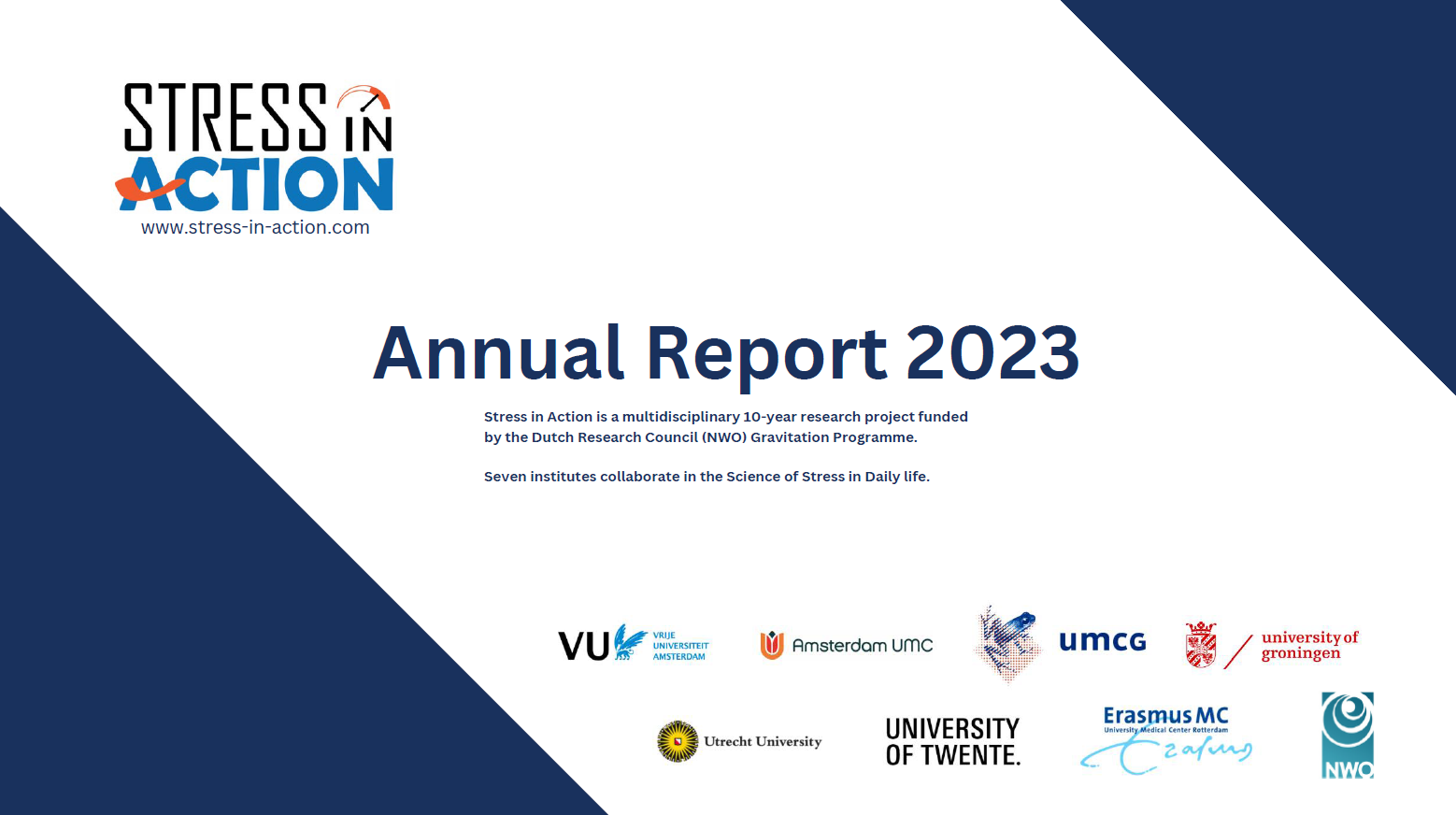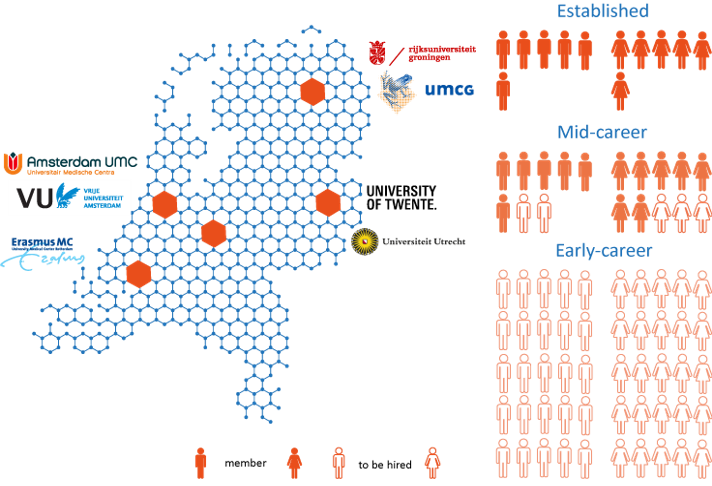Documentation
This page contains some more information on the Stress in Action programme.
Annual Report 2023
The first year of Stress in Action is completed. Our Annual Report gives a complete overview of our achievements and highlights of 2023.

Research application
We are happy and honoured that our Stress in Action programme received a Gravitation grant from the Dutch Research Council (NWO). This grant of 19.6 million Euro will fund 10 years of research activities to make the Stress in Action programme reality.
Gender balance, career phase, and geographic spread of the (future) SiA

